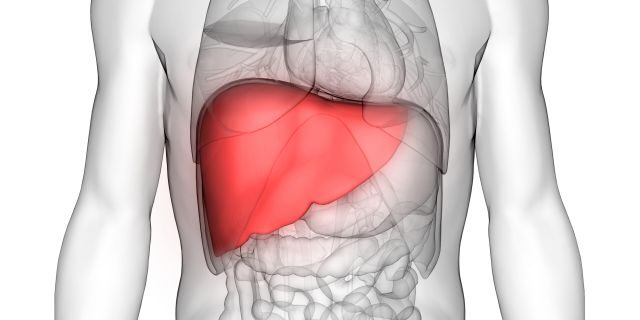A liver grown in the lymph nodes of a pig could bring hope to patients dealing with liver disease, according to a new study. Researchers out of the University of Pittsburgh School of Medicine showed that pigs with damaged livers were able to use their own hepatocytes – a type of liver cell that functions as a natural regenerator, to grow a new organ in their lymph nodes, according to the study in journal Liver Transplantation.
COFFE MAY PROTECT YOUR LIVER, NEW STUDY SUGGESTS
“It’s all about location, location, location,” senior study author Eric Lagasse, Pharm.D., Ph.D., stated in a press release. “If hepatocytes get in the right spot and there is a need for liver functions, they will form an ectopic liver in the lymph node,” Lagasse, also an associate professor of pathology at the University of Pittsburgh, stated in a news release.

Researchers showed that pigs with damaged livers were able to use their own hepatocytes, a type of liver cell that functions as a natural regenerator, to grow a new organ in their lymph node.
This is good news for patients like Meredith Stone, who has primary biliary cholangitis (PBC). PBC is an autoimmune disease that attacks the bile ducts of the liver, creating scarring and potentially causing liver failure.
“The thought of needing a liver transplant is always in the back of my mind,” Stone shared with Fox News in an interview. “I try to stay healthy, but it is scary. There isn’t much research because I’m told it is not one of the ‘popular liver diseases’ so it doesn’t get much attention with research. Unfortunately, I’m left with just praying for a miracle cure every day.”
PATIENTS AT HIGH RISK FOR CORONAVIRUS SHOULD WATCH OUT FOR THIS COMMON LIVER CONDITION, DOCTOR WARNS
Stone said the new study gives her hope and said, “Maybe this sparks the pathway for a successful treatment and cure for PBC and other liver diseases.”
According to the university’s news release, the researchers replicated liver disease in a group of pigs by diverting blood supply from the liver and simultaneously removing a piece of the healthy liver. They extracted hepatocyte cells from the healthy tissue, and injected them into the abdominal lymph nodes of the same pig, according to the report.
The study stated that all six pigs recovered their liver function, and their lymph nodes showed flourishing hepatocytes and a bile duct network and vasculature that formed spontaneously among the transplanted liver cells.
“The cells of the liver normally replenish themselves but need a healthy, nurturing environment to regenerate. However, in end-stage liver disease, the liver is bound up by scar tissue and too toxic for the cells to make a comeback,” the researchers explained in a press release.
The new accessory livers grew in size according to how damaged the original liver was, the researchers stated in their report. The study authors said this indicated that the pig’s bodies were able to maintain an equilibrium rather than produce an abnormal uncontrolled growth similar to a cancer, according to the release.
The new findings support the results of a previous study where Lagasse and researchers at the Mayo Clinic showed that a damaged liver was repaired by healthy liver tissue grown in the lymph nodes of pigs with a genetic liver defect. That study showed that the healthy cells migrated and replaced the diseased liver cells spontaneously, curing the animal of its liver disease, according to the university news release.
The team of researchers are hopeful the results will lead to a treatment for different liver diseases and stated a human clinical trial is next.
“The generation of auxiliary liver tissue using the lymph nodes as hepatocyte engraftment sites represents a potential therapeutic approach to supplement declining hepatic function in the treatment of liver disease.”
Dr. Douglas Dieterich, MD, a professor of medicine and liver disease at Mt. Sinai Hospital in New York City, was not part of the study but told Fox News that “using lymph nodes to grow liver is an intriguing idea which relies on the marvelous regenerative capacity of the liver to grow and repair itself. The success in pigs is very promising but, of course, the next step would be to see if it works in humans”.
